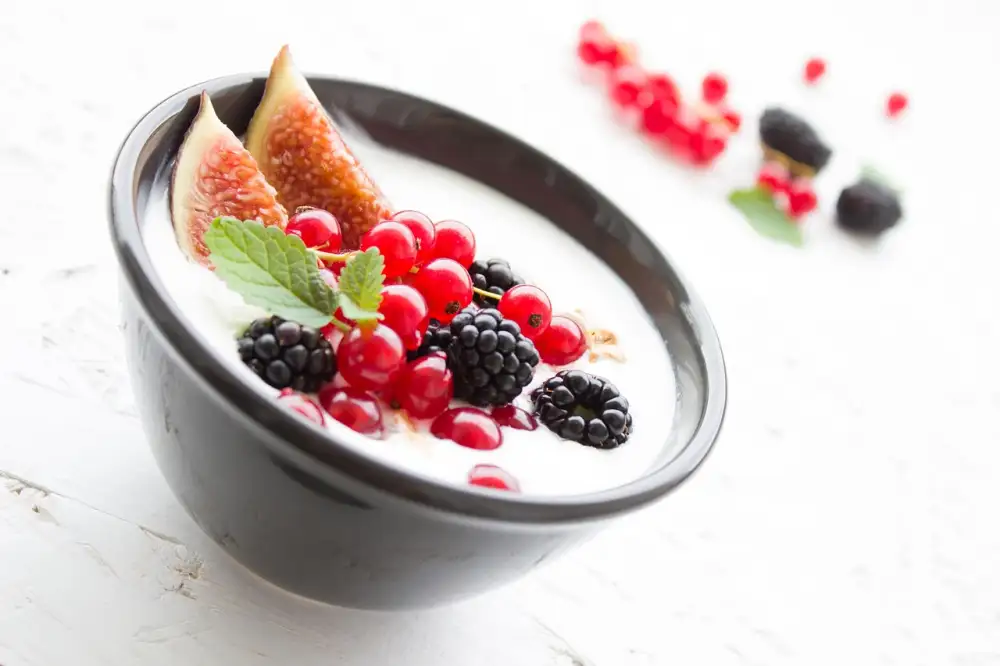Delicious and Nutritious: Discover the Best Healthy Low Calorie Meals for a Healthier You

In today's fast-paced world, maintaining a healthy lifestyle can often feel like a challenge. However, one of the most effective ways to achieve optimal health is by incorporating healthy low calorie meals into our daily diet. These meals not only provide essential nutrients but also help in weight management and reducing the risk of chronic diseases. In this article, we will explore the benefits of healthy low calorie meals, provide nutritional guidelines, and offer some delicious meal ideas for breakfast, lunch, dinner, and snacks. By incorporating these nutritious options into your diet, you can embark on a journey towards a healthier you.
Benefits of Healthy Low Calorie Meals
Healthy low calorie meals offer numerous benefits for individuals striving to improve their overall well-being. Firstly, these meals can aid in weight management by reducing calorie intake and promoting a healthy body weight. By consuming fewer calories, individuals can create a calorie deficit, leading to weight loss over time.
Additionally, low calorie meals are often packed with essential nutrients such as vitamins, minerals, and antioxidants. These nutrients play a vital role in supporting various bodily functions and maintaining optimal health. By incorporating nutrient-dense ingredients into low calorie meals, individuals can ensure they are getting the necessary nutrients without compromising on taste or satisfaction.
Furthermore, consuming healthy low calorie meals can help reduce the risk of chronic diseases such as heart disease, diabetes, and certain types of cancer. Research has shown that a diet rich in fruits, vegetables, whole grains, lean proteins, and healthy fats can lower the risk of developing these conditions.
Moreover, low calorie meals can improve digestion and promote gut health. These meals often include high-fiber foods that aid in digestion and prevent constipation. Additionally, they support the growth of beneficial gut bacteria which contribute to overall digestive health.
Lastly, incorporating healthy low calorie meals into one's diet can boost energy levels and enhance overall mood. Nutrient-rich foods provide sustained energy throughout the day while avoiding excessive caloric intake prevents energy crashes commonly associated with high-calorie meals.
In conclusion, opting for healthy low calorie meals not only aids in weight management but also provides an array of benefits including improved nutrient intake, reduced risk of chronic diseases, enhanced digestion and gut health, as well as increased energy levels and mood improvement. By making conscious choices about our food intake, we can embark on a journey towards a healthier lifestyle.
Nutritional Guidelines for Low Calorie Meals
When it comes to creating healthy low calorie meals, it's important to focus on nutrient-dense foods that provide essential vitamins and minerals without adding excessive calories. Here are some nutritional guidelines to keep in mind:
1. Include plenty of fruits and vegetables: These should form the foundation of your low calorie meals as they are rich in fiber, antioxidants, and other vital nutrients. Aim for a variety of colors to ensure a wide range of nutrients.
2. Choose lean protein sources: Opt for lean meats like chicken breast, turkey, or fish, which are lower in calories and saturated fats compared to red meats. Plant-based proteins such as beans, lentils, tofu, and tempeh are also excellent options.
3. Incorporate whole grains: Replace refined grains with whole grains like quinoa, brown rice, whole wheat bread, and oats. Whole grains provide more fiber and nutrients while keeping you fuller for longer.
4. Limit added sugars: Minimize your intake of sugary beverages, desserts, and processed snacks that contribute empty calories. Instead, satisfy your sweet tooth with naturally sweet fruits or small amounts of honey or maple syrup.
5. Control portion sizes: Pay attention to portion sizes to avoid overeating even when consuming low calorie meals. Use smaller plates and bowls to create the illusion of a fuller plate.
6. Be mindful of fats: While fat is an essential part of a balanced diet, choose healthy fats like olive oil, avocados, nuts, and seeds in moderation. These provide satiety while offering beneficial nutrients.
Remember that individual nutritional needs may vary based on factors such as age, gender, activity level, and overall health status. Consulting with a registered dietitian can help tailor specific dietary recommendations for your unique needs when embarking on a low calorie meal plan.
Breakfast Ideas
Breakfast is often considered the most important meal of the day, and choosing a healthy low calorie option can set the tone for a nutritious day ahead. Here are some delicious breakfast ideas that are both satisfying and low in calories.
1. Oatmeal: Start your day with a bowl of warm oatmeal topped with fresh fruits like berries or sliced banana. Oats are rich in fiber, which helps keep you feeling full for longer and aids digestion.
2. Greek Yogurt Parfait: Layer Greek yogurt with granola and mixed berries for a protein-packed and antioxidant-rich breakfast. Greek yogurt is high in protein, calcium, and probiotics, making it a great choice for a healthy start to your day.
3. Veggie Omelette: Whip up a colorful omelette using egg whites or a combination of whole eggs and egg whites. Add plenty of vegetables like spinach, bell peppers, mushrooms, and tomatoes for added vitamins and minerals.
4. Avocado Toast: Spread mashed avocado on whole grain toast and top it with sliced tomatoes or a poached egg. Avocado provides healthy fats while whole grain bread offers fiber and nutrients.
5. Smoothie Bowl: Blend together frozen fruits like bananas, berries, and spinach with almond milk or yogurt to create a thick smoothie base. Top it with nuts, seeds, or granola for added crunch and nutrients.
Remember to watch portion sizes and choose nutrient-dense ingredients when preparing your breakfast meals. These ideas will not only keep you satisfied until lunchtime but also provide essential nutrients to fuel your body throughout the day
Lunch Ideas
Lunchtime is an important opportunity to refuel and nourish your body with a healthy low calorie meal. By choosing nutritious options, you can maintain energy levels throughout the day while also supporting your overall health and weight management goals.
One great lunch idea is a colorful salad packed with fresh vegetables, lean protein, and a light dressing. Opt for dark leafy greens like spinach or kale as the base, then add in cherry tomatoes, cucumbers, bell peppers, and carrots for added crunch and flavor. Top it off with grilled chicken or tofu for protein and a drizzle of olive oil and lemon juice as a refreshing dressing.
Another option is to prepare a whole grain wrap filled with lean meats or plant-based proteins such as turkey breast, grilled chicken, or hummus. Load it up with plenty of veggies like lettuce, tomatoes, onions, and avocado for added fiber and nutrients. This satisfying lunch will keep you feeling full without weighing you down.
For those who prefer something warm and comforting, consider making a homemade vegetable soup. Use low sodium broth as the base and add in an assortment of vegetables such as carrots, celery, zucchini, and spinach. You can also include legumes like lentils or beans for added protein. Pair it with a side of whole grain bread for a well-rounded meal.
Lastly, don't forget about leftovers! Utilize any leftover grilled salmon or roasted chicken from dinner to create a delicious salad or wrap. Simply combine the protein with mixed greens or whole wheat tortillas along with some sliced avocado and your favorite veggies.
Remember to choose nutrient-dense ingredients that are low in calories but high in vitamins, minerals, and fiber when planning your lunches. By incorporating these ideas into your daily routine, you'll be on your way to enjoying tasty yet healthy low calorie meals that will keep you satisfied until dinner time.
Dinner Ideas
Dinner is an important meal of the day, and it's crucial to make it both satisfying and healthy. Here are some delicious dinner ideas that are low in calories but high in nutrition.
1. Grilled salmon with roasted vegetables: Salmon is packed with omega-3 fatty acids and protein, while roasted vegetables provide essential vitamins and minerals. This flavorful combination is not only nutritious but also easy to prepare.
2. Quinoa stir-fry with tofu and mixed vegetables: Quinoa is a complete protein source, making it an excellent choice for vegetarians or those looking to reduce their meat intake. Toss in some tofu and a variety of colorful veggies for a well-balanced, low-calorie meal.
3. Zucchini noodles with lean turkey meatballs: Swap out traditional pasta for zucchini noodles to cut down on calories. Pair them with homemade turkey meatballs made from lean ground turkey for a lighter yet satisfying dinner option.
4. Baked chicken breast with steamed broccoli and sweet potato: Chicken breast is a lean source of protein, while steamed broccoli and sweet potato offer fiber and essential nutrients. This simple yet nourishing meal can be easily customized with your favorite herbs and spices.
5. Lentil curry with brown rice: Lentils are rich in plant-based protein, fiber, and various vitamins and minerals. Combine them with aromatic spices like turmeric, cumin, and coriander to create a hearty curry served over nutrient-dense brown rice.
Remember to control portion sizes and avoid excessive use of oils or sauces when preparing these meals. By incorporating these dinner ideas into your routine, you can enjoy delicious flavors while maintaining a healthy low-calorie diet.
Snack Ideas
Snacks are an essential part of our daily diet, providing us with energy and helping to curb hunger between meals. When it comes to healthy low calorie snacks, there are plenty of options that are both delicious and nutritious. Here are some snack ideas that will satisfy your cravings without adding unnecessary calories.
1. Fresh Fruits: Fruits like apples, oranges, and berries are not only low in calories but also packed with vitamins, minerals, and fiber. They make for a refreshing and satisfying snack.
2. Greek Yogurt: Greek yogurt is a great choice for a low calorie snack as it is high in protein and calcium. Add some fresh fruits or a sprinkle of nuts for added flavor and texture.
3. Vegetable Sticks: Snack on crunchy vegetable sticks like carrot, celery, or cucumber. These low calorie snacks are rich in fiber and provide essential nutrients while keeping you full.
4. Air-Popped Popcorn: Popcorn can be a healthy snack if prepared without excessive butter or oil. Opt for air-popped popcorn seasoned with herbs or spices for a flavorful yet low calorie treat.
5. Nuts and Seeds: A handful of nuts or seeds can provide you with a good dose of healthy fats, protein, and fiber. Almonds, walnuts, pumpkin seeds, or sunflower seeds make for excellent choices.
6. Rice Cakes: Rice cakes are light and crispy snacks that come in various flavors. They are low in calories and can be topped with spreads like nut butter or hummus for added taste.
Remember to choose snacks that are nutrient-dense rather than calorie-dense to get the most out of your snacking habits. Additionally, portion control is key when it comes to snacking on low calorie foods. Enjoy these snack ideas guilt-free while maintaining a healthier lifestyle!
Tips for Creating Healthy Low Calorie Meals
1. Choose whole, unprocessed foods: Opt for fresh fruits and vegetables, lean proteins, whole grains, and healthy fats. These foods are nutrient-dense and lower in calories compared to processed options.
2. Portion control: Be mindful of portion sizes to avoid overeating. Use smaller plates or bowls to help control portions visually. Fill half of your plate with vegetables, one-quarter with lean protein, and one-quarter with whole grains.
3. Cook at home: By preparing meals at home, you have full control over the ingredients used and cooking methods employed. This allows you to reduce added sugars, unhealthy fats, and excessive sodium commonly found in restaurant meals.
4. Use cooking techniques that minimize added fats: Try grilling, baking, steaming, or sautéing with minimal oil instead of deep-frying or pan-frying in heavy amounts of oil.
5. Experiment with herbs and spices: Enhance the flavor of your dishes without adding extra calories by using herbs and spices instead of salt or high-calorie sauces. This can make your meals more enjoyable while reducing sodium intake.
6. Include a variety of colors on your plate: Different colored fruits and vegetables provide a range of vitamins, minerals, and antioxidants necessary for good health. Aim for a rainbow of colors on your plate to ensure a diverse nutrient intake.
7. Plan ahead: Plan your meals in advance to avoid impulsive food choices that may be higher in calories. Prepare a weekly meal plan and make a shopping list accordingly to ensure you have nutritious ingredients readily available.
8. Stay hydrated: Sometimes we mistake thirst for hunger. Stay hydrated by drinking plenty of water throughout the day to prevent unnecessary snacking or overeating.
9. Practice mindful eating: Slow down while eating and pay attention to physical hunger cues rather than emotional triggers or external distractions like television or smartphones. This can help prevent overeating and promote better digestion.
By following these tips, you can create delicious and satisfying low calorie meals that contribute to a healthier lifestyle. Remember, it's not just about the calories; it's also about the quality of nutrients you consume.
In conclusion, incorporating healthy low calorie meals into your diet can have numerous benefits for your overall health and well-being. By choosing nutrient-dense ingredients and following nutritional guidelines, you can create delicious and satisfying meals that are also good for you.
Breakfast is an important meal of the day, and options like oatmeal with fresh fruits or a vegetable omelet can provide a great start to your day. For lunch, salads with lean protein sources like grilled chicken or fish are excellent choices. Dinner can be a time to experiment with flavorful dishes such as stir-fried vegetables or baked salmon.
When it comes to snacks, opt for nutritious options like Greek yogurt with berries or carrot sticks with hummus. These choices will keep you satisfied between meals without adding unnecessary calories.
Remember to incorporate plenty of fruits, vegetables, whole grains, lean proteins, and healthy fats into your meals. Be mindful of portion sizes and avoid excessive use of oils, sugars, and processed foods.
By following these tips and making conscious choices about what you eat, you can achieve a healthier lifestyle while still enjoying delicious food. So go ahead and explore the world of healthy low calorie meals – your body will thank you!
Published: 14. 02. 2024
Category: Health



